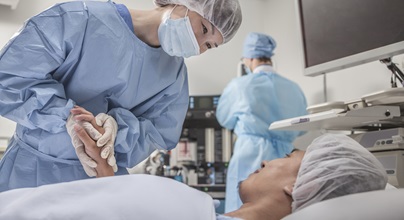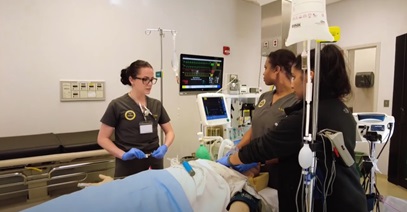
Medical assistants serve both patients and healthcare providers like doctors and nurse practitioners. Their efforts are crucial to running facilities from hospitals to outpatient clinics. As such, the healthcare field needs medical assistants who provide top-notch care and support. Here is what makes a standout medical assistant in the eyes of employers.
1. Communication
Communication is at the heart of medical assisting. Medical assistants interact with patients, doctors, nurses, and administrative staff. They explain procedures, give instructions, listen to patient concerns, and relay messages. They also document patient information and write emails and reports. The role requires being a good listener and strong communicator.
2. Empathy and Compassion
Medical assistants often see patients who are anxious or unwell. They need to build trust and provide emotional support for those patients. Showing empathy and compassion will help people feel comfortable and respected.
3. Attention to Detail
The healthcare environment demands precision. Attention to detail is required constantly, whether taking vitals, updating patient records, or administering medications. Medical assistants must take care to avoid mistakes in patient care and note-taking. Safety should also stay top of mind, with all protocols followed meticulously.
4. Technical Skills
Medical assistants use various medical and office equipment throughout the day. Employers look for assistants with clinical, administrative, and technology skills that include:
- Clinical tasks like obtaining a health history, drawing blood, performing ECGs, and assisting with routine and specialty exams
- Laboratory testing and diagnostic procedures
- Scheduling, billing, coding, and general medical office management
- Using electronic health records (EHR) and other medical software
5. Organizational Skills
Medical assistants juggle multiple tasks and responsibilities in fast-paced settings. Time management and multitasking are imperative. Clinical and administrative duties must be prioritized and completed without hurting quality.
6. Adaptability
The nature of healthcare means that situations change rapidly. Medical assistants must adapt. They need to respond quickly and effectively to emergencies. Likewise, they must be flexible and willing to adjust to new schedules, tasks, and patient needs.
7. Professionalism
Employers need a high level of professionalism and reliability. Care providers count on medical assistants to be responsible and punctual. They also expect ethical conduct, including maintaining patient confidentiality.
8. Teamwork
Medical assistants are part of a larger healthcare team. Collaboration is essential for delivering coordinated and comprehensive patient care. Being a good teammate also creates a positive and supportive workplace.
9. Problem-Solving
Unexpected challenges are the norm in healthcare. Medical providers value assistants who can analyze situations, think critically, and make informed decisions. From patient concerns to operational problems, medical assistants should be ready to work on their own and within a team to resolve issues.
10. Commitment to Learning
Healthcare employers appreciate lifelong learners who continue to grow and improve. Earning a medical assisting degree is a great place to start. Many ongoing education and professional development programs also cover new procedures and technologies.
Build Your Medical Assisting Skills
Whether you are an aspiring medical assistant or hope to advance in your current role1, our Medical Assisting program2 can help you develop and practice many of the skills above. Request information to learn more!
--
1 South University does not promise or guarantee licensure, employment, or salary amounts.
2 The South University Medical Assisting Programs on the Columbia and Savannah campuses are accredited by the Commission on Accreditation of Allied Health Education Programs (www.caahep.org) upon the recommendation of Medical Assisting Education Review Board (MAERB). Commission on Accreditation of Allied Health Education Programs (CAAHEP); 9355 - 113th Street North, #7709, Seminole, FL 33775, Email: mail@caahep.org.
The Associate of Science in Medical Assisting program offered at Montgomery and through South University’s online programs is not accredited by the Commission on Accreditation of Allied Health Education Programs (www.caahep.org).
Graduates of the Associate of Science in Medical Assisting from the South University Columbia, Montgomery, or Savannah campus may be eligible to sit for the following national certification exams:
- Certified Medical Assistant (CMA) by American Associations of Medical Assistants (AAMA)
- Registered Medical Assistant (RMA) by American Medical Technologists (AMT)
- Clinical Certified Medical Assistant (CCMA) exam by National Healthcareer Association (NHA)
- Nationally Certified Medical Assistant (NCMA) through National Center for Competency Testing (NCCT)
- Clinical Medical Assistant Certification (CMAC) from the American Medical Certification Association (AMCA)




